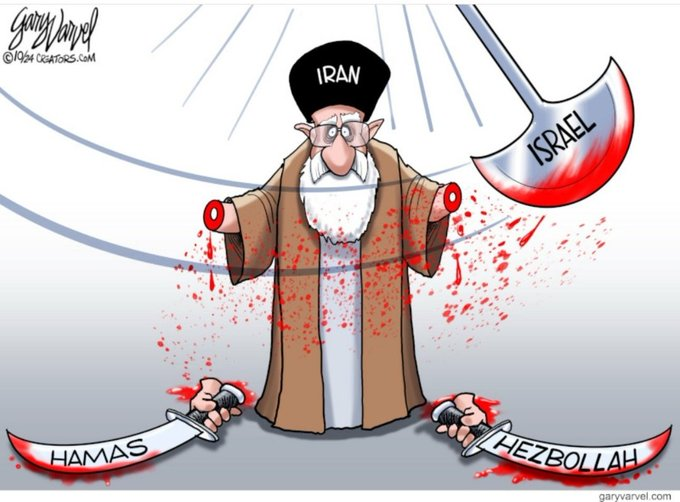Israeli Prime Minister Benjamin Netanyahu, through his retaliatory actions, has accomplished more in neutralizing threats from longstanding adversaries of the West than multiple major Western security and intelligence agencies.
These agencies include NATO, responsible for collective defense in Europe and North America; the CIA, which is charged with foreign intelligence gathering and operations; the FBI, focused on domestic intelligence and security within the U.S.; and Interpol, which facilitates international police cooperation.
This implies that Netanyahu’s actions have protected Western interests, particularly against Middle Eastern groups and factions with histories of violence against Western nations.
Netanyahu’s Counter-Terror Efforts
Over the years, Netanyahu has led multiple Israeli operations aimed at dismantling threats posed by organizations like Hamas, Hezbollah, and Islamic Jihad, all of which have targeted not only Israel but Western interests globally.
These actions include intelligence operations, military strikes, and counter-terrorism measures that have often preempted potential attacks, sometimes indirectly protecting Western countries.
This suggests that his efforts, although primarily aimed at securing Israel, have had the added benefit of hindering adversarial groups that might have also targeted Europe and the U.S.
The Western Security Apparatus
NATO, the CIA, the FBI, and Interpol have vast resources but operate under numerous restrictions, political complexities, and bureaucratic oversight.
These agencies often have to navigate complex international law, coordinate with various governments, and face significant public scrutiny, which can slow down or limit their actions.
This implies that despite their resources, these agencies have struggled to contain threats effectively in ways Netanyahu has managed to do more directly, particularly in high-stakes situations involving immediate threats.
Lack of Gratitude from the West
This reflects a sense of frustration that Netanyahu’s efforts have often been met with criticism from Western governments rather than recognition.
The rebukes could be due to a range of reasons, including the civilian casualties that sometimes accompany Israeli operations, concerns about the methods used by Israeli forces, or opposition to specific policies under Netanyahu’s administration.
Western nations might criticize these actions due to differing views on appropriate responses to threats or political opposition to Israel’s policies on Palestinian territories.
Perceived Irony or Surrealism
The “surreal” aspect here is the irony of a leader, ostensibly protecting both his country and, indirectly, Western interests, but receiving condemnation instead of appreciation.
From this perspective, it’s paradoxical that a figure taking aggressive measures against common adversaries receives more backlash than gratitude, especially when Western intelligence and military institutions, despite their vast capabilities, have struggled with similar tasks.
Geopolitical Tensions
Western countries, while recognizing Israel as a key ally in the Middle East, often maintain a complicated stance on its actions due to diplomatic relations with other nations in the region, including those with strategic or economic importance.
This can result in mixed messages, where Israel is both an ally and a subject of rebuke depending on the global political climate.
In summary, this perspective suggests that Netanyahu’s hardline measures have arguably benefited Western security by weakening mutual adversaries.
However, due to political, ethical, and diplomatic concerns, the West has often reacted critically rather than offering support or acknowledgment for these efforts.
